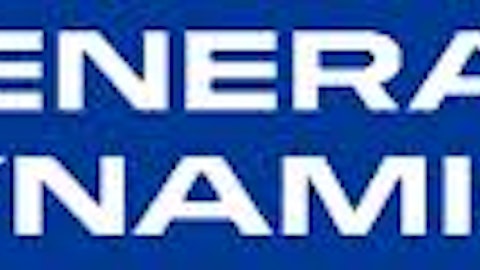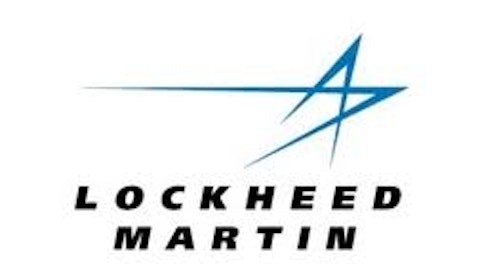There are some studies that suggest institutional investors’ stock ownership flows, in aggregate, are positively correlated with returns, whereby “institutional trades lead stock prices.” A 2003 study published in The Journal of Portfolio Management says that, with the exception of small-cap equities, “increases in institutional ownership are associated with positive returns, and reductions in institutional ownership with negative returns.”
We took a closer look at the trends in institutional ownership of stocks in order to identify the ones that, in the previous quarter, saw especially robust accumulation by smart money investors. Below is a glance at five stocks and REITs with a net change in institutional ownership higher than 10%. All five securities have yields above 2.0%. (Note: Institutional ownership data is sourced from Nasdaq.)
Healthcare Trust Of America Inc (NYSE:HTA), the owner and operator of high-quality medical office buildings, registered a 180% increase in institutional ownership of its shares in the previous quarter versus the quarter before. Healthcare Trust of America is a relatively new REIT, as it was listed on the NYSE in June 2012. The REIT has a dividend yield of 5.0% and a payout ratio of 95% of 2012 normalized FFO.
Healthcare Trust of America reported strong financial performance last quarter, with normalized FFO increasing 23.1% year-over-year. Its fourth-quarter Net Operating Income (NOI) rose 15.0% and rental income increased 11.8% year-over-year.
Healthcare Trust of America operates in a defensive sector with strong growth fundamentals. The REIT’s investment story is based on the assumption that the number of insured Americans under the Affordable Care Act will rise by up to 40 million by 2021, the aging population will boost healthcare spending, and patient care will shift to cost-efficient medical office buildings. The company looks fairly priced, as it trades at 18.9 times 2012 normalized FFO versus 18.8 times for Ventas, Inc. (NYSE:VTR) and 17.6x for HCP, Inc. (NYSE:HCP). Last quarter, Healthcare Trust of America was a new, relatively small holding in Jim Simons’ and Richard Driehaus’ hedge funds.
KAR Auction Services Inc (NYSE:KAR), a leading vehicle auction services company, recorded a 19.4% sequential increase in institutional ownership in the previous quarter. The firm might have been interesting to smart money investors as it was exploring a leveraged buyout last year. However, it suspended its sale after talks with a private equity firm Clayton Dubilier & Rice LLC collapsed.
KAR Auction Services has a dividend yield of 3.8% and a payout ratio of 40% of its 2013 estimated free cash flow. Last quarter, the company missed on the top line but beat on the bottom line, with its adjusted EBIDTA increasing 7.0% and its EPS expanding 29% year-over-year. KAR sees 2013 as “an inflection point in wholesale car auction volumes.” Wholesale auction volumes were flat in 2012, but should see a 5% increase this year, according to the 2013 Manheim Used Car Market Report.
The company’s forecasted whole auction volumes’ CAGR in the 2012-2015 period is 4.1%. Moreover, growth prospects are supported by rebounding new vehicle sales and a significant increase in lease penetration post-financial crisis. In terms of valuation, KAR Auction Services is trading at a forward P/E of 17.0x versus 19.8x for its rival Copart. Last quarter, value hedge fund Cardinal Capital was bullish on KAR Auction Services.
General Dynamics Corporation (NYSE:GD), an aerospace and defense company, registered a 14.1% sequential increase in institutional ownership in the previous quarter. The company boasts a dividend yield of 3.2%, a payout ratio of 33% of the current-year EPS estimate, and a five-year annualized dividend growth of 15.9%.
Due to concerns about defense spending cuts and the process of sequestration, General Dynamics Corporation (NYSE:GD)’ stock has performed poorly over the past 12 months, registering a 4.5% decline in value. Earlier this year, the company issued 2013 earnings guidance that was well below analyst estimates, which, in turn, resulted in significant, negative revisions of General Dynamics’s 2013 and 2014 EPS estimates.
Still, the company, which is one of legendary investor Warren Buffett’s, represents good value, holding almost 10% of total assets in cash and equivalents, operating in a sustainable industry with a wide moat, and trading at a forward P/E of 10.3x (below the defense industry’s forward multiple of 11.6x). Longview Asset Management held almost $2.3 billion in General Dynamics stock at the end of the previous quarter.
Garmin Ltd. (NASDAQ:GRMN), one of the world’s largest manufacturers of global positioning devices for cars, boats, planes, outdoor and fitness, saw an 11.8% sequential increase in institutional ownership last quarter. The company pays a dividend yield of 5.4% on a payout ratio of 75% of its current-year EPS estimate. This yield has been inflated by the near-30% drop in Garmin’s stock price over the past 12 months.
Garmin Ltd. (NASDAQ:GRMN) has no long-term debt and holds almost 60% of total assets in cash and marketable securities. However, it has been underperforming in recent years, due to fierce competition in a maturing market characterized by falling device prices. Detrimental to the company’s prospects has been the proliferation of navigation applications for mobile phones, and the marine and automotive segments have been particularly weak.



